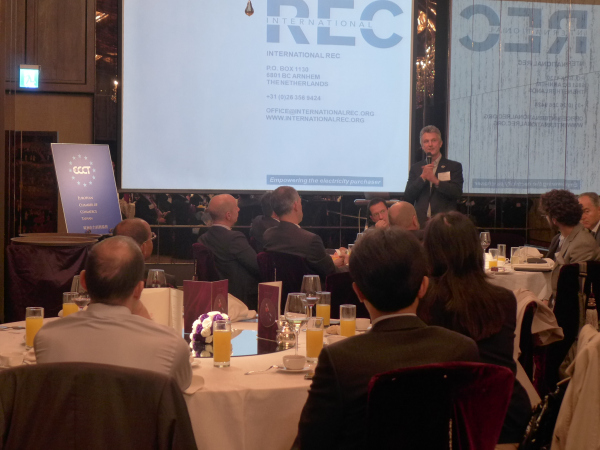Pricing and promoting green electricity

Emissions take place during the production of electricity. The energy source used to produce electricity makes electricity a ‘product'. To work out how much energy is produced by each source, an electricity tracking system is required, such as the "guarantee of origin" system used in Europe. International Renewable Energy Certificates (I-REC) has worked since 2001 to improve and simplify the system of tracked electricity. They do this by issuing certificates that can be purchased by consumers, who can then legitimately claim to have used renewable energy.
The organization started operating in Europe and later in the United States. It is now looking at expanding to other countries including Turkey and South Africa. Taiwan is not yet an open market but the same system could be introduced here.
The idea behind I-RECs is to use a market based system to spur an increase in renewables. The electricity market is demand driven and there are a growing number of consumers who are willing to make a committed choice for one type of energy source over another. According to Niermeijer, 72% of global Fortune 500 companies are actively measuring and monitoring the carbon emissions of their operations globally for various reasons including CSR, energy and cost reduction as well as competitiveness. A company's carbon footprint is also a growing factor for investors when choosing among rival companies. I-RECs are designed to allow consumers (such as large corporations) to choose the electricity ‘product' they like most. I-REC audits electricity producers and issues certificates that verify an amount of renewable energy they have produced from a particular source. Certificates are then bought by consumers, which can then claim that they have used x amount of renewable energy in their operations, thereby reducing their overall carbon footprints.
The idea is that supplying companies will act to meet demand by offering the kinds of electricity products that their customers want. In a market based system, producers with the best products will get the best prices (and margins) since their products will be the most in demand.
